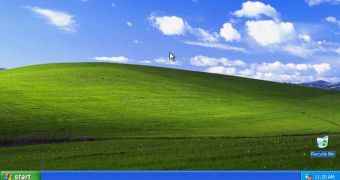Windows XP support officially ended on April 8, 2014, so the operating system no longer receives updates and security patches from Microsoft, meaning that all those who are still running it could become vulnerable overnight once a hacker finds an unpatched glitch.
Microsoft has already left out of Windows XP of the May 2014 Patch Tuesday rollout, so it's pretty obvious that the company has no intention to continue fixing this particular OS version, even though so many people are still using it right now.
Alastair MacGibbon, who is the Director of the Center for Internet Safety at University of Canberra, and also worked in the security departments of the Australian High Tech Crime Center and eBay, says that Windows XP hackers will mostly try to steal your money when trying to get into your computer.
As a precautionary measure, users are recommended to avoid saving banking sessions or any other financial details on their Windows XP computers, in an effort supposed to help them stay on the safe side in case someone breaks into their PCs.
“The type of criminals who'll be exploiting PCs running XP will be after one thing: cash. They'll either take cash directly by stealing credit card details, eavesdropping on internet banking sessions, or plundering our identity information (usernames, passwords, online bills) which they either use to build up credit applications, or (more likely) sell to online. So there will likely just be increased volume of those types of surreptitious attacks,” the security expert said in an interview with The New Zealand Herald.
“There'll also be an uptake in what's known as 'ransomware' which involves crooks locking your files and demanding money to unlock them. In short, the increased vulnerabilities will lead to more... lots more... of the same.”
According to third-party figures provided by market researcher Net Applications, Windows XP is still being used by 26 percent of the desktop computers worldwide, but figures are very likely to drop in the coming months, as more companies complete the transition to a newer OS.
Microsoft's operating system of choice for Windows XP users is Windows 8.1, but such a migration would also involve hardware upgrades that make everything even more expensive. Of course, some users are also refusing to upgrade because they think that Windows XP remains the most reliable operating system version released by Microsoft until now. It remains to be seen what is going to happen in case someone finds a flaw in Windows XP.

 14 DAY TRIAL //
14 DAY TRIAL //